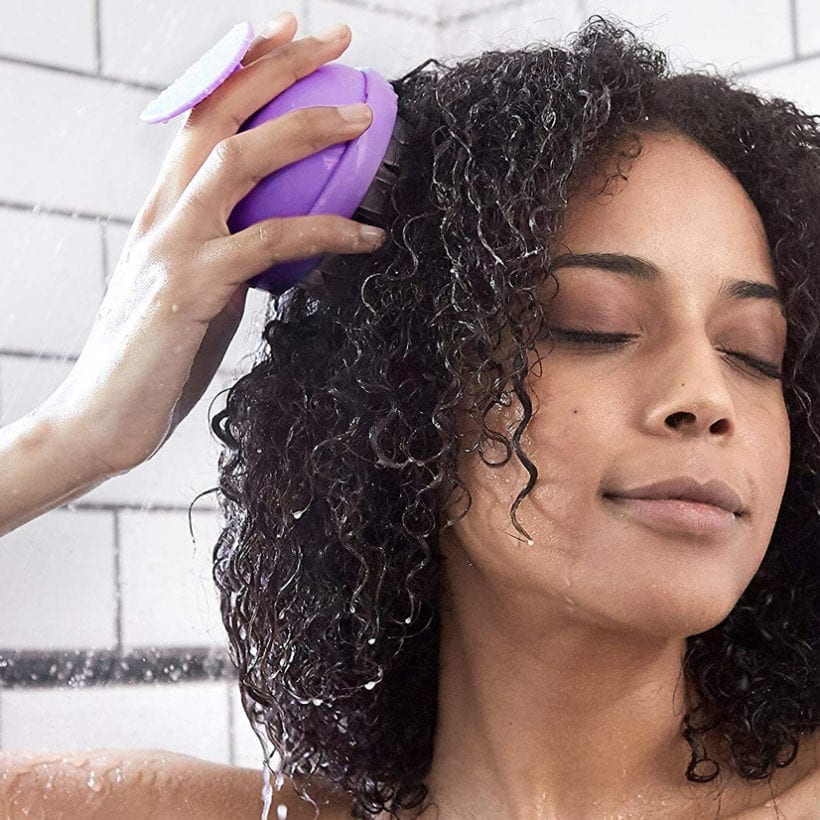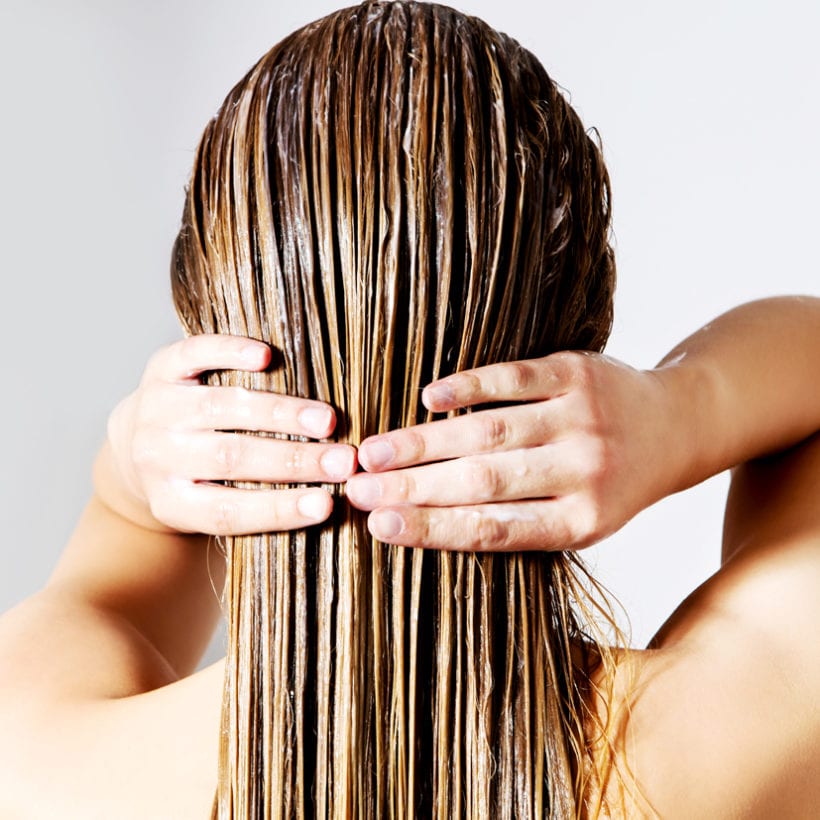Deep conditioners are your hair’s best friend, especially when temps begin to drop. Winter’s harsh, bone dry air is known to dehydrate the hair due to low levels of humidity in the air — less humidity equals less moisture. Couple that with artificial heat and the fact that the hair produces fewer natural oils than usual, and there’s reason enough to load up on moisture-infusing deep conditioners — a winter must-have.
Meet the Experts
Chase Kusero is the co-founder of IGK Hair Care.
Howard McLaren is the co-founder and creative director of R+Co.
Laurie Daniels is a colorist at Marie Robinson Salon in New York City.
Jamila Powell is the founder of Naturally Drenched and owner of Maggie Rose Salon.
Hair Moisture 101

Winter is synonymous with fly-aways, static, frizz, breakage, and even dandruff because the dry air steals moisture from the hair fiber, explains Chase Kusero, co-founder of IGK Hair Care. “Cold air slightly lifts the hair cuticle, so moisture doesn’t stay locked in, and as a result, the hair gets thicker, frizzier, and more brittle,” he says. In addition, because the hair is constantly losing hydration due to dryness, Kusero says it’s necessary to replenish it with extra moisture. “Deep conditioner goes the extra mile and nourishes hair long after you step out of the shower to protect it from dryness and static,” he notes.
It’s important for those in colder climates to add moisture to the hair, similarly to following different skincare routines in different seasons, says Howard McLaren, co-founder and creative director of R+Co. “When hair is dry, it can become brittle and break due to moisture loss, which causes it to lose its elasticity,” McLaren says. “All hair types are prone to this, but we especially see it in those with color- or chemically-treated hair and naturally dry, coarse, or curly textures,” he adds.
Why Deep Conditioners are Better
Think of a deep conditioner as going one step further than a regular conditioner. Regular conditioners are lighter in their formulation and active ingredients but are great for routine conditioning to soften and smooth the cuticle. Still, a deep conditioner is a must during the winter since they provide long-lasting moisture, especially since “we use more heat to style hair in the winter,” says celebrity colorist Laurie Daniels of Marie Robinson Salon.
“Deep conditioners or hair masks tend to be more intensive and provide richer moisturizing ingredients,” McLaren says. “Therefore, it’s best to replace your regular conditioner with a deep conditioner or mask to achieve shiny hair and more vibrant color,” shares McLaren.
Although all hair types benefit from extra hydration in the winter, some experts, like Daniels and Jamila Powell, founder of Naturally Drenched and owner of Maggie Rose Salon, recommend deep conditioning year-round. “In my opinion, a deep conditioner is a must in every season, especially if you have coarse or curly hair,” Powell says. “Regular conditioner can replace moisture, but deep conditioner has the added benefit of penetrating the shaft more, which gets deeper into the core of the strands.”

Ingredients to Look for
Hydrating oils like olive, argan, soybean, and green tea work wonders for sealing moisture for perpetually dry and damaged hair. “They contain proteins and fatty acids that replenish the hydrogen (moisture) your hair is losing to dry air,” says Kusero.
Avocado, almond, rosehip, and aloe vera oils also offer mega moisturizing benefits due to their ability to infiltrate the shaft. “Sealing oils, like castor or jojoba, are also great because they lock in moisture and add shine,” explains Powell. Another fan favorite is coconut oil, which nourishes and strengthens — it’s also a star ingredient in R + Co’s Television Perfect Hair Masque.
Many deep conditioners contain rich butters. In addition, Kusero points out that it’s not uncommon for deep conditioners to also incorporate foods found in the kitchen, like bananas and honey. “These types of ingredients contain high concentrations of hair-nourishing collagen, selenium, and prebiotics, to keep the hair fiber strong and healthy.”
Silk and wheat protein, popular repairing and hydrating ingredients, also sit front and center on the ingredient label of many deep conditioners. So does collagen (find it in to112 Collagen Hair Mask), keratin, and peptides. “They repair and reconnect broken bonds within the hair shafts,” says Daniels, adding that her favorite is K18 Leave-in Molecular Repair Mask. And although silicone gives the hair a good amount of ‘slip,’ Daniels refers to it as a “quick, Band-aid fix that makes the hair feel temporarily smooth without doing the hair any favors.”
When to Use Deep Conditioners

Normal hair should apply a deep conditioner at least once per week in place of a regular conditioner, but you can dial that up or down if you feel when needing more or less moisture. Chemically relaxed, permed, straightened, or heavily highlighted or bleached hair may want to use a deep conditioner after almost every shampoo during the winter. Powell says tighter curl patterns should be deep-condition once a week and finer textures once every few weeks. Regardless, every hair type benefits from a hefty dose of moisture, even if the hair appears to be at its optimal health.
To prevent a weighed down or greasy look, Daniels says to keep the product off the scalp. “If you have virgin or very fine hair, use something light, such as the Milbon Volumizing Conditioner,” she adds. Also, wash with a clarifying shampoo a few days before you deep-condition.
What Makes for a Good One?
The thicker the consistency of the conditioner, the better. “A good hair mask should provide nourishing nutrients and prolonged protection against environmental damage,” says Kusero. Two ultra-thick formulas to dose your strands in include Eva NYC Therapy Session Hair Mask and IGK Offline 3-Minute Hair Mask.
When it comes to choosing between a DIY conditioning mask and a salon treatment, both work equally as well. Salon treatments are great for an indulging experience, but there’s something nice and convenient about doing it at home. Regardless, “after using a deep conditioner, your hair should feel smooth, soft, and look shiny,” Powell says.
We only recommend products we have independently researched, tested, and loved. If you purchase a product found through our links, Sunday Edit may earn an affiliate commission.







